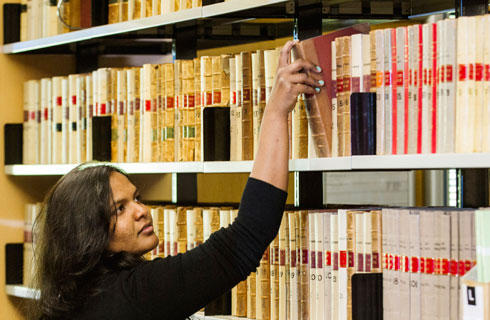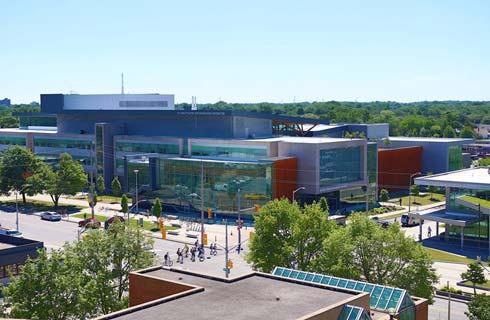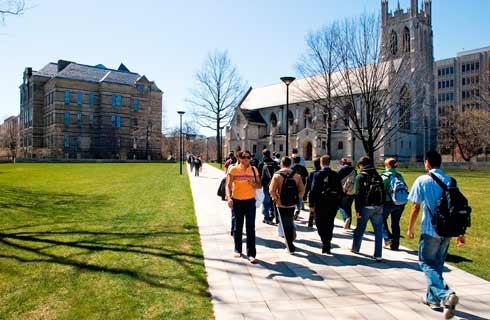- IDP China>
- 课程库>
- 教育学>
- 教育>
- 教育,特定学科领域>
- Doctor of Philosophy in Education - Language, Literacy and Technology
Doctor of Philosophy in Education - Language, Literacy and Technology

学历文凭
Ph.D.

专业院系
Education

开学时间

课程时长

课程学费

国际学生入学条件
Applicants must have a degree from an accredited 4-year institution and a 3.0 or higher cumulative grade point average (GPA) on a 4.0 scale.
Tests required:
Minimum TOEFL Scores: Internet 80
The minimum acceptable IELTS score is 7.
Priority deadline:
Fall: December 1
IDP—雅思考试联合主办方

雅思考试总分
7.0
- 雅思总分:7
- 托福网考总分:80
- 托福笔试总分:550
- 其他语言考试:MELAB - 77
CRICOS代码:
申请截止日期: 请与IDP联系 以获取详细信息。
课程简介
相关申请
 预科
预科 奖学金
奖学金 实习机会
实习机会 在校学习
在校学习 跨境学习
跨境学习 校园授课-线上开始
校园授课-线上开始 在线/远程学习
在线/远程学习
开学时间&学费
学费信息仅供参考,请与IDP联系以获取详细信息
| 开学时间 | 时长 | 学费 | 地点 |
|---|
学校排名

世界排名301
数据源:
泰晤士高等教育世界大学排名
关于华盛顿州立大学

华盛顿州立大学(WSU)热烈欢迎所有国际学生加入WSU的''美洲狮''大家庭。华盛顿州立大学是美国西部历史最悠久的赠地大学之一,自1890年以来一直激励着问题解决者。华盛顿州立大学(WSU)的目标是提供鼓励学习者让世界变得更美好的教育。学生在整个职业生涯里都是个人和全球专业关系网中的一员,并享有终身会员资格。国际学生占学生群体总人数的百分之七,代表着115多个国家/地区 。海外学生受益于许多机会,例如出国留学和职业发展活动。该大学提供超过4亿美元的奖学金和学生资助,其中有几个奖项只为国际学生办法。学校共有98个本科专业, 78个硕士学位和65个博士学位课程可供学习。 其中有三个专业学位方向为医学、药学和兽医学。许多计划在全国乃至世界范围内均被评为最佳计划。 华盛顿州立大学的教授们真心关心学生并致力于帮助学生成功,并通过激发创造力的多样方法进行教学。6个校区华盛顿州立大学在华盛顿州有五个不同的校区,以及在线校区。每个校区都根据学生的需求提供不同的内 容。大部分课程设立于华盛顿州立大学普尔曼校区,以便学生们可以在传统美国大学中环境中生活和学习。学生可以轻松地与同学会面并结交新朋友,同时享受校园周围有趣的活动。
本校相关课程
其他相关课程

化学理学学士-化学教育
 莱特州立大学
莱特州立大学学历文凭
Bachelor Degree
开学日期
课程费用总额


Doctor of Philosophy in Art Education
 北德克萨斯大学
北德克萨斯大学学历文凭
Ph.D.
开学日期
课程费用总额


Bachelor of Science in Education in Middle Grades Education - Language Arts
 天普大学
天普大学泰晤士高等教育世界大学排名:459
学历文凭
Bachelor Degree
开学日期
课程费用总额


Bachelor of Science in Mathematics - Secondary Education
 圣弗朗西斯大学
圣弗朗西斯大学学历文凭
Bachelor Degree
开学日期
课程费用总额


Master of Arts in Education - Language, Literacy, and Technology
 华盛顿州立大学
华盛顿州立大学泰晤士高等教育世界大学排名:501
学历文凭
Masters Degree
开学日期
课程费用总额


Bachelor of Arts in Art - Teaching
 加州州立大学富尔顿分校
加州州立大学富尔顿分校学历文凭
Bachelor Degree
开学日期
课程费用总额
















